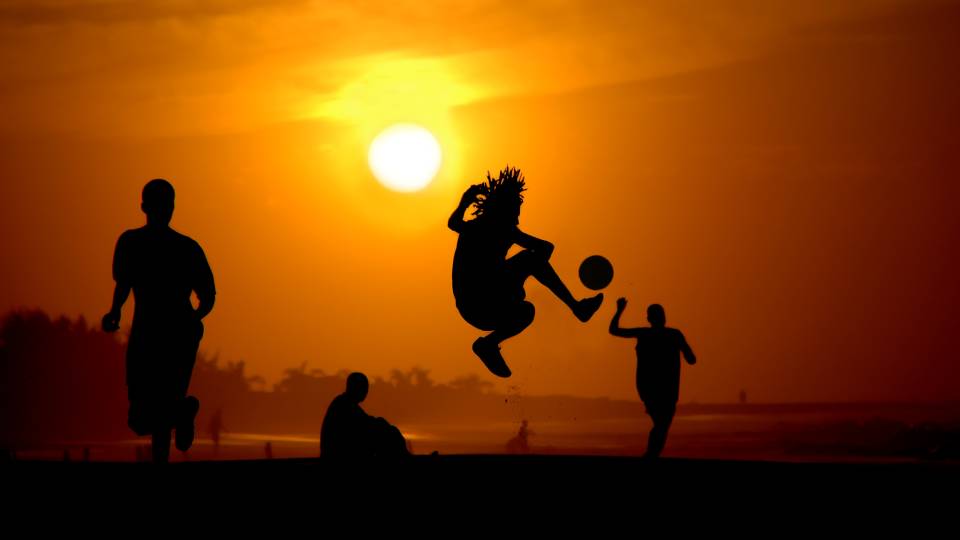The report presents a rigorous academic and policy-oriented analysis of human trafficking in the global sports ecosystem. It details a comprehensive literature review, interdisciplinary expert consultations, forensic analysis of documented trafficking incidents, comparative international policy assessment, and contributions from global experts.
While highlighting the economic benefits of the sports industry, which is estimated to be between $471 billion and $1.4 trillion annually, the report sheds light on how this lucrative industry has become a magnet for traffickers exploiting vulnerable individuals, particularly young athletes from the Global South.
According to industry stakeholders, the absence of a specific definition for ‘sport trafficking’ has presented significant challenges in distinguishing the phenomenon from migrant smuggling, irregular migration, and other forms of human trafficking, thereby preventing targeted Interventions. The report delivers a precise definition of sport trafficking, referred to as a process of recruiting and exploiting individuals within the sporting domain.
This is characterised by coercive mechanisms that compromise individuals and fundamental human rights. It not only involves the direct exploitation of athletes but also extends to the many ways the industry can serve as a conduit for labour and sexual exploitation, especially during mega sporting events which attract increased demand for informal labour and entertainment services.
The report also identifies a range of different areas for improvement in efforts to combat sport trafficking and more effectively protect vulnerable athletes and aspiring athletes. Recommendations are revealed in the study for policymakers, law enforcement, prosecutors, the judiciary, service providers, and sport organisations.
Dr Serhat Yilmaz, the lead researcher behind the report and Senior Lecturer at Loughborough University, underlines the importance of the definition of sport trafficking provided within the report.
“Without a precise, sport-specific definition of trafficking, we are dealing with inadequate legal protections, ineffective policy development, challenges in identifying and supporting victims, limited prevention strategies and blurred legal distinctions that allow perpetrators to escape accountability. Therefore, our objective behind this work is to bring sport trafficking out of the shadows and into focused, actionable legal and social frameworks”, he explained.
The report also presents a typology of sport trafficking supported by case studies that are identified and developed through the research. This typology of sport trafficking, as another novel aspect of the document, provides an overview of the different types of trafficking evident in, through, and around sports involving different actors and forms of exploitative purpose. In each case, the existence of the type of trafficking is determined by the presence of the necessary constituent elements of the trafficking crime as per the definition of the UN TIP Protocol, also known as Palermo Protocol.
"Our research constitutes not merely a scholarly contribution; it represents a crucial advancement in comprehending and addressing vulnerabilities related to trafficking across many continents. By aligning our efforts with the United Nations SDG 8.7 and 16.2, we can foster a safer environment for every athlete, with particular emphasis on the issue of sports trafficking," stated Lerina Bright, Executive Director of Mission 89, the foremost independent non-governmental organisation committed to fighting the exploitation of young athletes through its 3 pillars of research, education and advocacy.
“With a clear and specialised definition, we can provide clearer legal frameworks, guide more effective policymaking, improve victim support mechanisms, enable more targeted educational efforts and help the judiciary better recognize and address these specific trafficking cases.”
To view the full report, visit: https://mission89.org/wp-content/uploads/2024/12/GLOBAL-THEMATIC-REPORT-ON-SPORT-TRAFFICKING..pdf
Dr Serhat Yilmaz and Lerina Bright (Mission 89) recently discussed the report on Loughborough University’s Experts in Sport podcast.
To listen to the recording, visit:
Apple Podcasts: https://podcasts.apple.com/ie/podcast/e87-human-trafficking-in-the-global-sports-ecosystem/id1478616713?i=1000699955931
Spotify: https://open.spotify.com/episode/3b43M4WNnoLK2Zv2l74h19?si=pJyJ3-MISpyG3FYfrZvNoA
YouTube: https://www.youtube.com/watch?v=ArNfTjPUJhs
Buzzsprout: https://www.buzzsprout.com/411622/episodes/16822616

